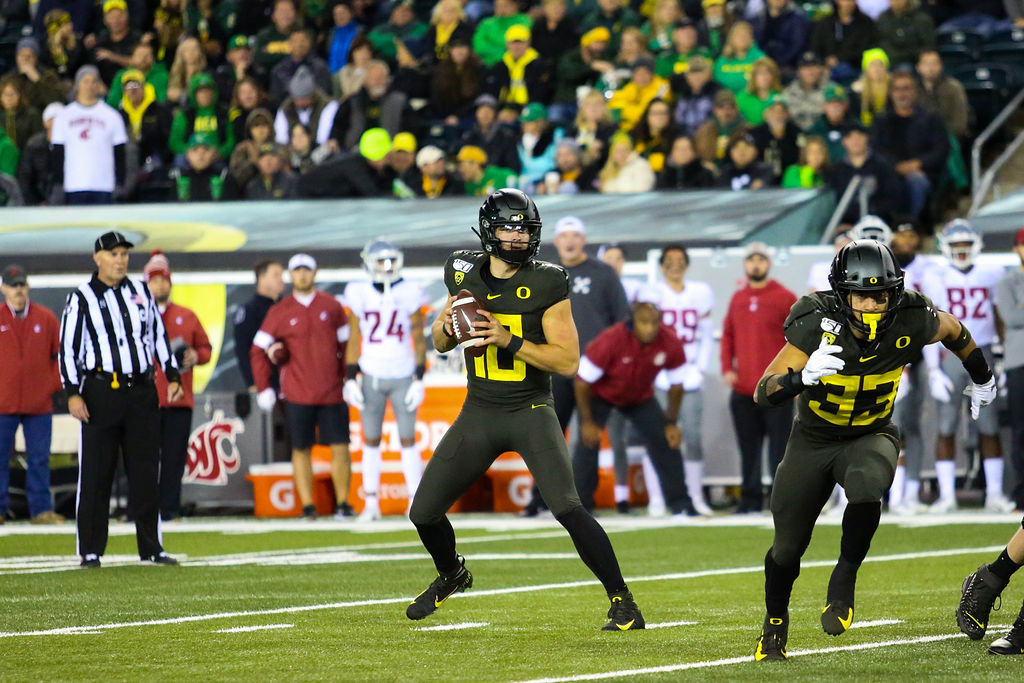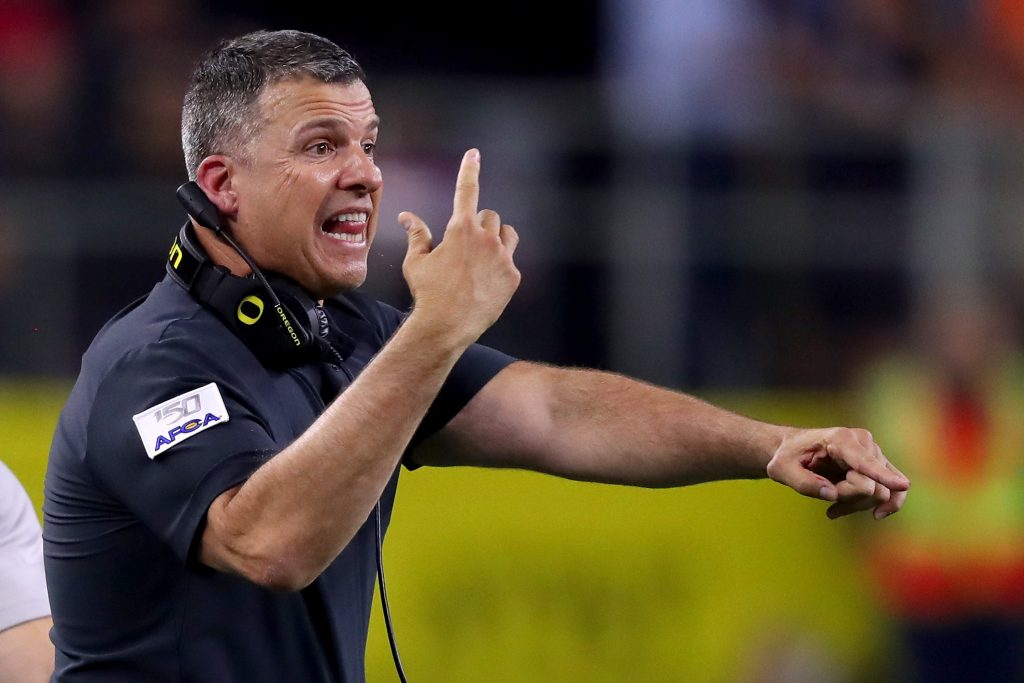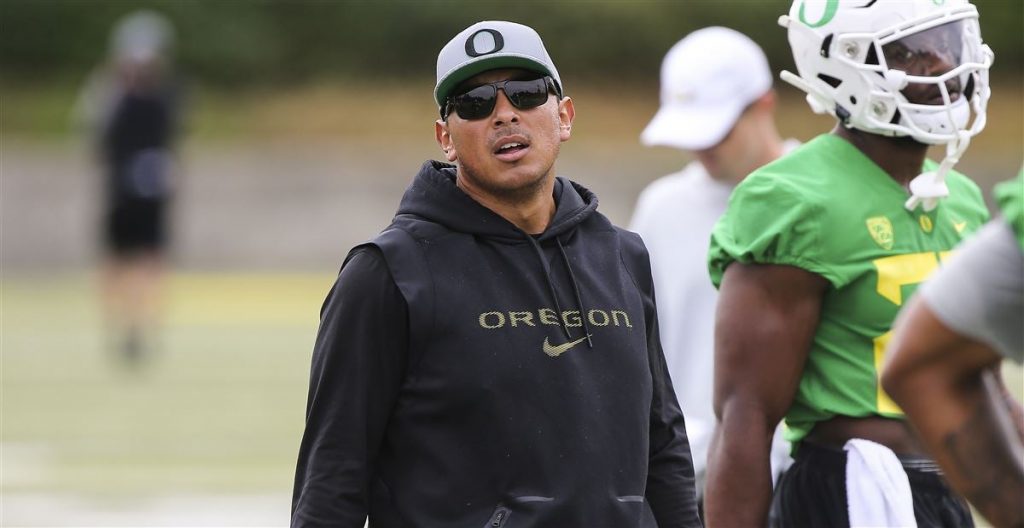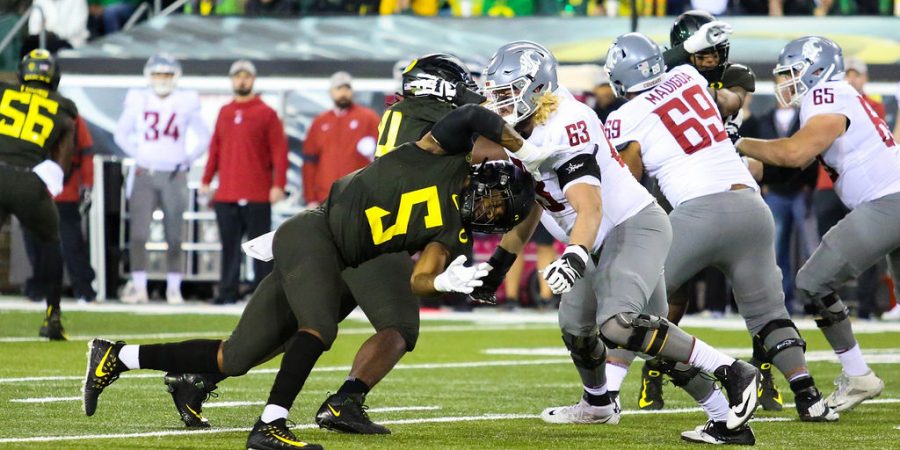With the final bye week of the season in the books, there’s little reason to believe that the 6th-ranked Oregon Ducks won’t be well-rested and fully restored, both physically and mentally, as they embark on a critical three-game stretch to close out the regular season. The first step in that journey begins Saturday night inside Autzen Stadium, as the Ducks host the Arizona Wildcats in a game which Oregon enters as an overwhelming 27.5-point favorite.
Though the stakes for the Ducks are vastly different this year compared to last year’s woefully underwhelming performance against the Wildcats in Tucson, the fact remains that Arizona has proven to be a nasty thorn in Oregon’s side dating all the way back to 2007. Overwhelming favorite or not, this is a matchup against an opponent that has relished its opportunities to upend the Ducks’ season.
With Oregon on high alert, WFOD examines the important keys to victory for the Ducks over Arizona.

1. Take advantage of Arizona’s dreadful pass defense
In their last two games, the Ducks have faced two of the weaker defenses in the Pac-12 in Washington State and USC – teams in which Oregon succeeded in taking advantage of en route to their respective victories. This week features another opponent which has struggled mightily to slow down opposing offenses. In fact, of all the teams on Oregon’s schedule, the Wildcats rank as the worst defense the Ducks will play this season as they reside in conference’s cellar in scoring defense (37.3 points/game), passing defense (313.4 yards/game), and total defense (481.2 yards/game). Arizona is also the Pac-12 cellar dweller in team sacks with just 10 through nine games.
With that in mind, if you’re Ducks offensive coordinator Marcus Arroyo, you’re likely relishing the opportunity the Arizona defense could afford the Oregon offense to get in sync quickly coming off the bye, particularly through the air. For the season, the Ducks rank in the top four in the conference in major offensive team categories such as scoring offense, passing offense, rushing offense, and total offense, and are coming off one of their most efficient outings of the season two weeks ago at USC. In that game, Justin Herbert completed 20 of his final 21 pass attempts after starting the day 1-of-5 for negative-3 yards, most notably establishing a potent rhythm with wideout Juwan Johnson. If the Ducks can replicate that kind of efficient effort through the air this Saturday vs. the Wildcats, it could result in another runaway victory for Oregon.

2. Reduce the number of penalties
When handicapping this weekend’s game between the Ducks and ‘Cats, many believe that the only the way Oregon can lose is if they shoot themselves in the foot. And while turnovers have been something the Ducks have managed to avoid to great success this season (currently ranked fifth nationally in turnovers lost), penalties have been a frustration that has mushroomed into a full-blown issue over the past several weeks.
Since taking over for Willie Taggart following the 2017 season, a year in which the Ducks were the most penalized team in the country, Mario Cristobal has done a masterful job instilling discipline. The proof came last season, as Oregon essentially cut their number of penalties and penalty yards in half, going from averaging 9.4 penalties for 88.3 yards per game to five penalties for 47.9 yards per game. This season started off similarly encouraging in the penalty department, as the Ducks ranked as one of the Pac-12’s least penalized teams over the first half of the season. However, that has changed dramatically over the past several weeks, as Oregon has been flagged for eight or more penalties in four of their last five games. For perspective, the Ducks didn’t have a single game last season in which they where flagged for more than seven penalties. Given what occurred between Oregon and Arizona down in Tucson last season, it would come as no surprise to see things get chippy between these two sides Saturday night. Yet, if the Ducks expect to win in convincing fashion, they can ill-afford to extend Arizona possessions or truncate their own possessions by committing the number of absurd penalties that notably plagued them against Colorado, Washington State, and USC.

3. Calmly juggle Arizona’s quarterback quandary
Though the Wildcats have received largely inconsistent play from the quarterback position this season, it really hasn’t impacted them that much when it comes to racking up yards (second in the Pac-12 in total offense – 495.8 yards/game) and putting up points offensively (fifth in the Pac-12 in scoring offense – 32.9 points/game). In some ways, having two capable quarterbacks has given the Arizona offense a different pitch they can confidently turn to in the event either Khalil Tate or Grant Gunnell falters. No one outside the confines of the Arizona program is able to confidently say who between Tate and Gunnell will earn the starting nod Saturday, but regardless of who Wildcats head coach Kevin Sumlin tabs, the challenge for Oregon will be being prepared for whatever Arizona has up its sleeve. Even for a precocious defensive coordinator like Andy Avalos, who has experienced tremendous success in his first season at Oregon, it can be painstaking work to try and craft a defensive game plan that soundly disarms an offense that takes on a very different form depending who is taking snaps from center. If the Ducks seamlessly adjust to whichever quarterback enters the game for Arizona and avoid getting caught flat-footed as the Wildcats’ offensive scheme morphs throughout the game, it should be all they need to make quick and easy work of Saturday’s opponent.
Top Photo: Oregon DL Kayvon Thibodeaux (Jenny Rydstedt/Whole Flock of Ducks)

